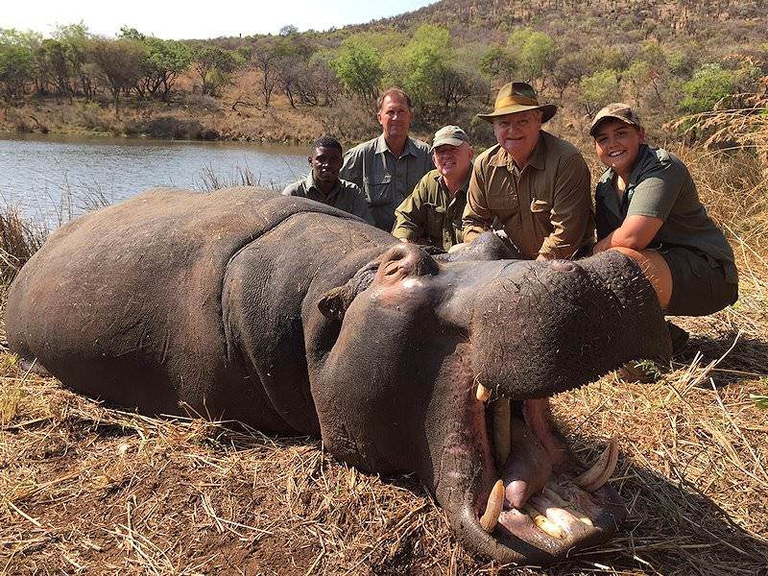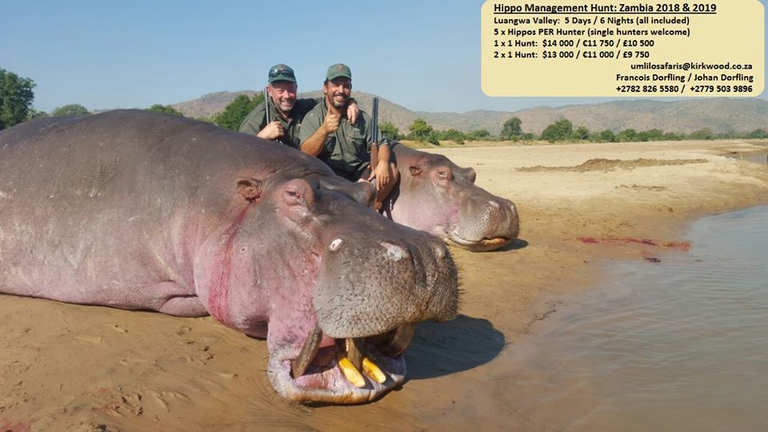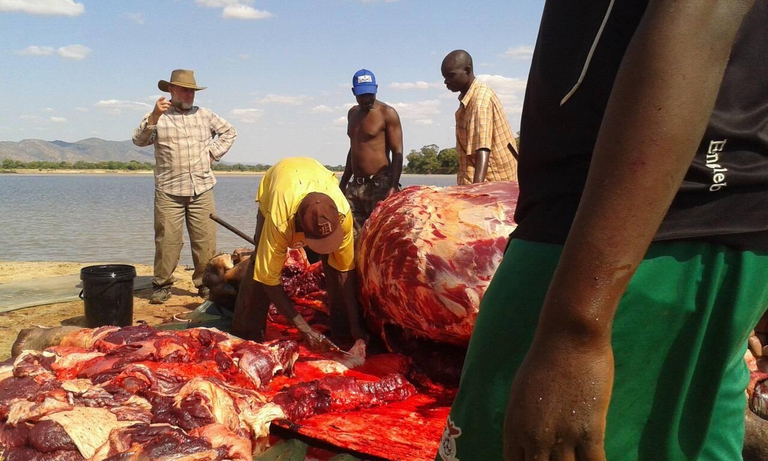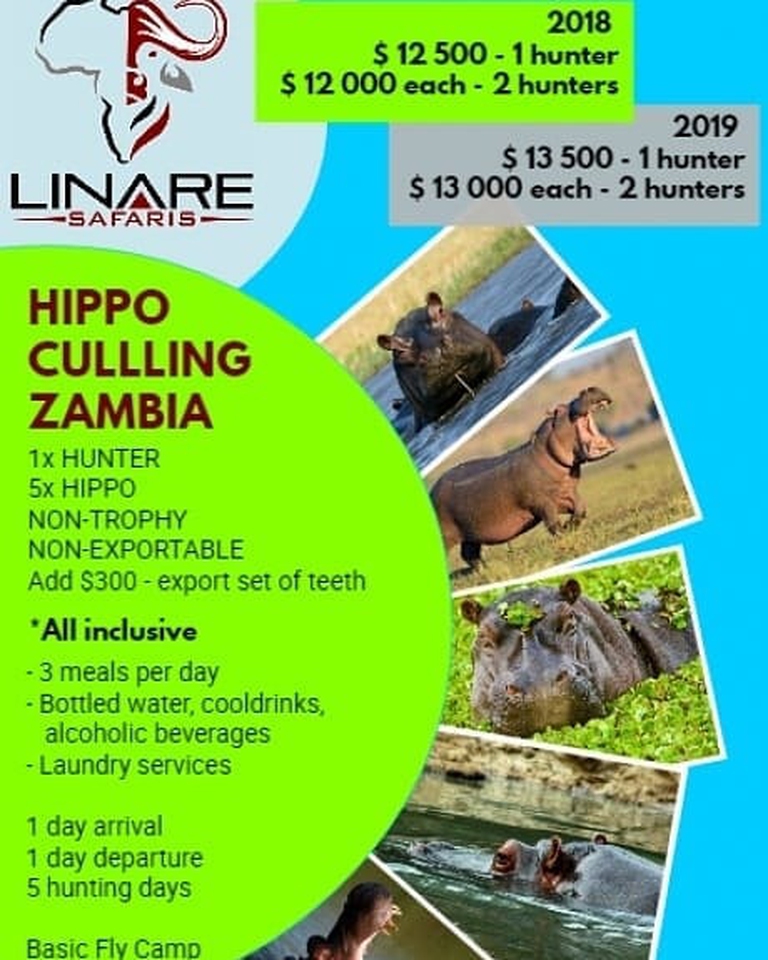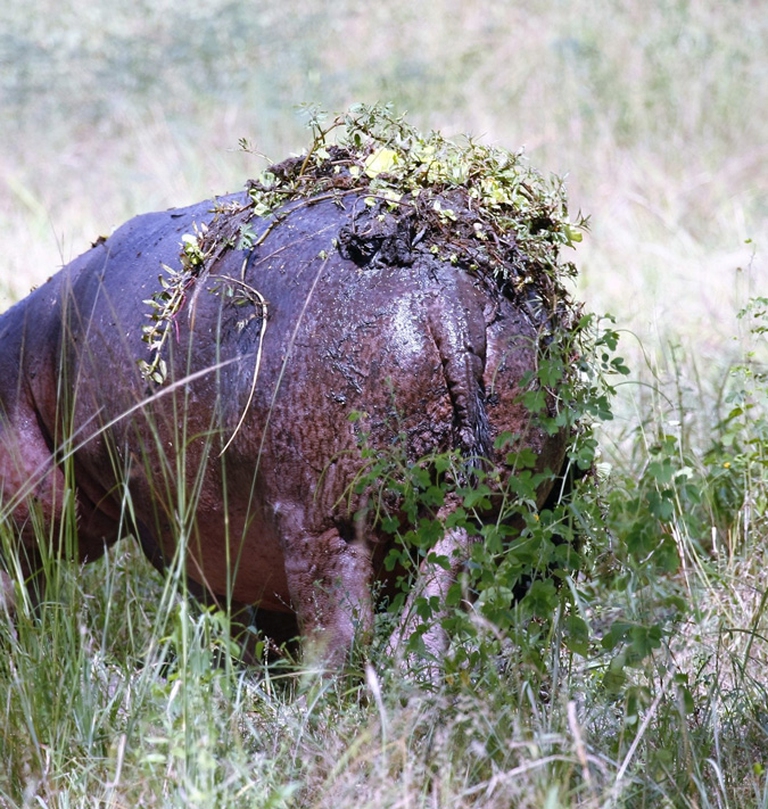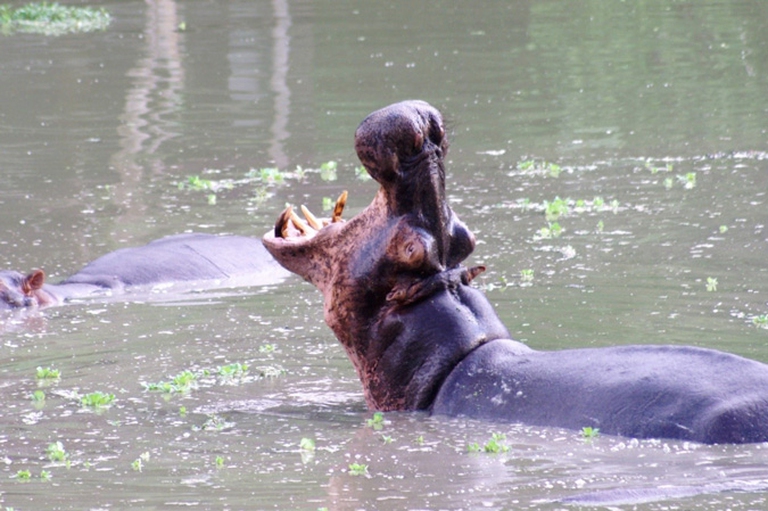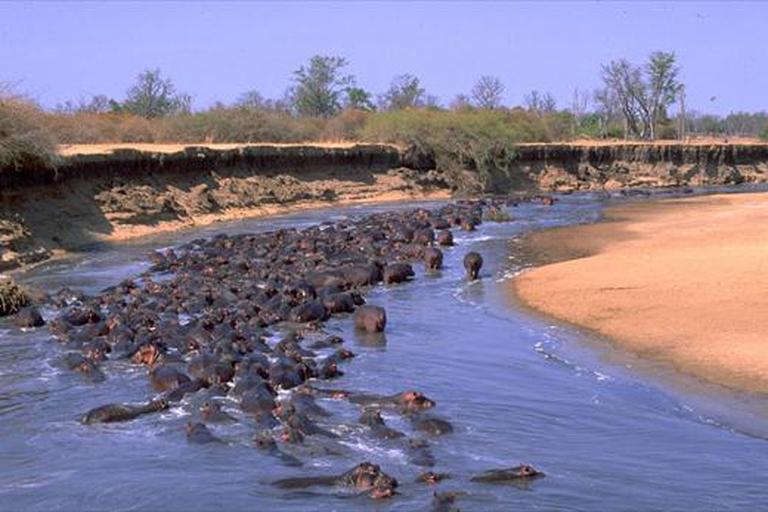
Our species took its first steps in a world covered in trees. Today, forests offer us sustenance, shelter, and clean the air that we breathe.
Zambia wants to allow culling of hippos in the Luangwa River, and safari companies are already advertising to hunters. Though there is no evidence of overpopulation, 250 hippos a year could be killed.
Update, 11 June – Robust campaigning by animal rights activists has led Zambia to cancel plans to kill thousands of hippos, whose population in the country is one of the largest in the world.
Read more: Zambia cancels plans to kill 2,000 hippos
A showdown is looming in Zambia between tourism operators in Luangwa National Park following the authorities’ recent proposal to approve a large-scale programme to cull more than 2,000 hippos over a five year period, outsourcing the operation to South African trophy hunting outfitters such as Umlilo Safari. That means allowing 250 hippos a year to be killed.
In 2006, a similar plan was rolled back after backlash by environmental and animal rights groups. Now, the proposal had made its way again, with the country’s government insisting that it would be in bid to control numbers and stop the spread of anthrax, a bacterial disease commonly found in sub-Saharan Africa that kills animals and sometimes humans. Zambia’s Department of National Parks and Wildlife (DNPW) has justified the cull saying the move will help prevent anthrax outbreaks in an area overpopulated with hippos, adding that unusually low rainfall in the region has exacerbated the situation.
The International Union for the Conservation of Nature (IUCN) warns that the hippopotamus (Hippopotamus amphibius) is listed as ‘vulnerable’ on its Red List, which classifies how endangered species are, with an estimated population of just 115-130,000 animals. The assessment notes that hippo population declines continue to be reported in many countries, adding that their conservation status remains precarious.
In fact, the hippo population on the Luangwa River is currently the largest in the world. The IUCN estimates that around 25,000 specimens are living in the area and notes that there may be as many as 42 hippos per square kilometre of the river at its highest density. In fact, around 20 percent of the world’s surviving hippos are found in this single river: a remarkable conservation achievement on Zambia’s part.
While Umlilo Safari has already begun advertising to trophy hunters, encouraging them to shoot five hippos in the Luangwa Valley and keep the animals’ tusks – “Each hunter will be charged up to 14,000 dollars,” according the organisation’s Facebook page –, British wildlife Charity Born Free has accused the government of “secretly” overturning the decision and “using much of the same flawed rationale for the proposed slaughter that the Zambian authorities used to try and justify the aborted 2016 cull,” states the NGO’s president, Will Travers. “History is repeating itself because, once again, the Zambian authorities have failed to provide any scientific evidence showing an overpopulation of hippos in the Luangwa River, or to make public any data that, at least in their mind, could justify a cull,” he also said.
“Wild hippo numbers across Africa are under increasing pressure with a maximum estimate of just 130,000 animals – about one third of the number of the high-profile African elephant. Lately, since efforts to curtail trade of elephant ivory in Zambia, unfortunately hippos are now targeted for their ivory as a replacement”.
“A decade to 2016, more than 6,000 hippo teeth, 2,048 hippo tusks and a further 1,183 hippo ‘trophies’ were exported to EU Member States alongside thousands of other ‘parts and products’. International trade records show that from 2004-2014 around 60,000 kilos of hippo ivory were imported into Hong Kong,” he added.
Even international hunting groups stated that more information is needed and the country’s Minister of Tourism Charles Banda has failed to respond specifically to the question of overpopulation in the Luangwa Valley.
“Culling of wildlife is not an option. It is a primitive wildlife conservation strategy,” according to Peter Sinkamba, President of the Zambian Green Party. “What is more appalling is that the Luangwa Valley is not overpopulated as they claim. We’re aware of the current status of the Luangwa Valley that is the more reason why we’re saying the whole process is motivated by greedy people in government, poor conservation policies, strategies and allocation of financial and human resources,” he said. An environmental conservationist turned politician, he disclosed that hippo population in the Luangwa River has dwindled by about 14-20 per cent in the last 20 years.
Read more: Maasai evicted from their lands to make space for trophy tourism in the Serengeti
A 2013 paper by researcher and veterinary expert Chomba Chansa explains that hippo populations in the Luangwa River oscillate upwards and downwards in four cycles of about eight years each, due to the collective influence of natural environmental factors. These factors have help the hippo population remain within the carrying capacity and for the entire period from 1976 to 2008. “Since the environmental factors were not constant, but rather fluctuated from year to year, the hippo population also followed the same pattern,” the report states.
Richard Kock, professor of wildlife health at the University of London’s Royal Veterinary College, challenged the government to provide data that would justify the proposed cull. “There’s no doubt that hippos can build up numbers until there really are probably too many for the ecosystem,” he said. “And so I think the anthrax may well be a factor in controlling their populations, and it may benefit the environment because they will consume large quantities of herbage, and obviously that will affect other species”.
“I’m also very sensitive to the fact people use these things as excuses for nefarious behaviour. So I would say you need good data and you need good evidence and it should be the scientific authorities who should back up any sort of criteria on culling,” he concluded.
A source close to the DNPW has disclosed that the proposed culling in question has a dodgy tender process at its core and appears to be an attempt by Zambian authorities to cover up a contract gone wrong. The DNPW was sued by Mabwe Adventures Limited, the hunting firm initially contracted to execute the cull. According to some critics, a recent court ruling that went in Mabwe’s favour exposed that the DNPW’s sudden backtracking on its 2016 anti-culling decision was a deliberate move to avoid paying compensation.
Furthermore, Zambia’s 2017 Parastatal Report noted that the contract in question was awarded to Mabwe under suspicious, corrupt circumstances. “A total sum of 81,108 Kwacha (over 8,000 dollars) was paid to the Zambia Wildlife Authority,” it reports.
Thus, apart from not being backed by scientific evidence of hippo overpopulation, the culling tender process has been mired in chaos, backtracking and scandals. And there are no guarantees in place that the revenues generated by this barbaric exercise will trickle down to local communities in the Luangwa Valley.
Siamo anche su WhatsApp. Segui il canale ufficiale LifeGate per restare aggiornata, aggiornato sulle ultime notizie e sulle nostre attività.
![]()
Quest'opera è distribuita con Licenza Creative Commons Attribuzione - Non commerciale - Non opere derivate 4.0 Internazionale.
Our species took its first steps in a world covered in trees. Today, forests offer us sustenance, shelter, and clean the air that we breathe.
Poachers in Africa are encroaching on wildlife land and killing rhinos in travel hot spots now devoid of visitors due to the coronavirus pandemic.
The Zambian government has reversed a controversial plan to approve a large-scale programme to cull more than 2,000 hippos over a five year period in Eastern province’s Luangwa Valley, situated over 300 kilometers from the capital Lusaka. Animals rights activists cried foul following the original decision, influencing its overturning. Read more: Zambia to allow trophy hunters to
Actor and environmental activist Leonardo DiCaprio has contributed two million dollars to a fund to protect Virunga National Park in Congo from threats such as terrorism, the coronavirus and poaching.
For the first time in seventeen years, Iceland’s two main whaling companies won’t resume whale hunting. The announcement concerns this year’s season but could carry into the future.
The relationship between the coronavirus and wildlife is complex: while the pandemic may lead to a reduction in the illegal trade in wild animals, it may also encourage it in other respects.
The largest coral reef in the world is severely threatened by climate change, but researchers are developing strategies that could contribute to saving the Great Barrier Reef.
NGO Free the Bears has opened a mountain sanctuary for moon bears in Laos. With the government’s help, it aims to close all bile farms by 2022.
Seychelles have extended its marine protected area, which now covers over 400,000 square kilometres, an area larger than Germany.
